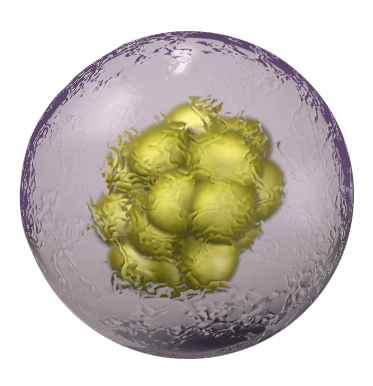Highlights
- •Osteoprogenitors (OPs) increase and induce GMP aggregation under remote tumor burden
- •Crosstalk between OPs and GMPs drives systemic accumulation of myeloid cells
- •HTRA1 on tumor-derived EVs upregulates MMP-13 in OPs to mediate CD41− GMP expansion
- •Myeloid accumulation causes immunosuppression that persists after tumor removal
Summary
Remote tumors disrupt the bone marrow (BM) ecosystem (BME), eliciting the overproduction of BM-derived immunosuppressive cells. However, the underlying mechanisms remain poorly understood. Herein, we characterized breast and lung cancer-induced BME shifts pre- and post-tumor removal. Remote tumors progressively lead to osteoprogenitor (OP) expansion, hematopoietic stem cell dislocation, and CD41− granulocyte-monocyte progenitor (GMP) aggregation. The tumor-entrained BME is characterized by co-localization between CD41− GMPs and OPs. OP ablation abolishes this effect and diminishes abnormal myeloid overproduction. Mechanistically, HTRA1 carried by tumor-derived small extracellular vesicles upregulates MMP-13 in OPs, which in turn induces the alterations in the hematopoietic program. Importantly, these effects persist post-surgery and continue to impair anti-tumor immunity. Conditional knockout or inhibition of MMP-13 accelerates immune reinstatement and restores the efficacies of immunotherapies. Therefore, tumor-induced systemic effects are initiated by OP-GMP crosstalk that outlasts tumor burden, and additional treatment is required to reverse these effects for optimal therapeutic efficacy.







